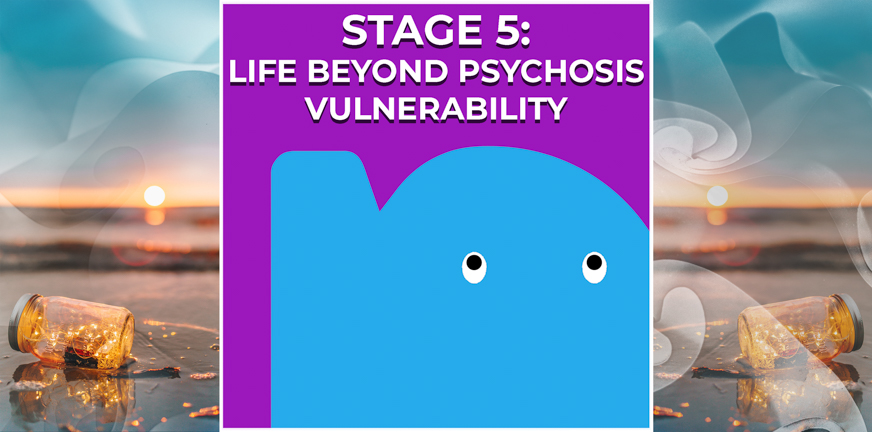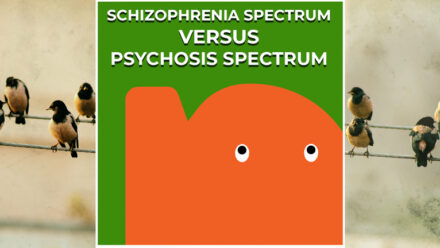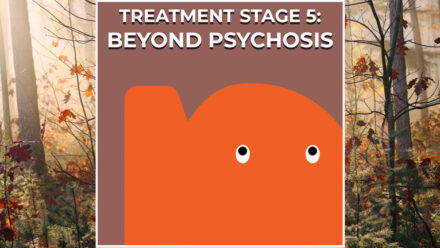
In the end you have made peace with everything that happened. In your quest of getting to know your vulnerability and your strengths, you have learned a lot. Like explaining to yourself and others what has happened from the perspective of a new story about yourself including where you come from and where you are going.
You understand how the psychosis was able to develop and what you can do to prevent this from happening again. You have learned how to keep your mental balance. You acknowledge what has happened and have integrated your vulnerability. You have learned how to deal with the psychiatric system, their diagnoses, their culture and their insistence on medications. You realise that they have some things to offer that are useful, whilst other things are not useful. You are regulating your own medication.
Life beyond psychosis does not mean you are entirely without symptoms
But you have learnt that your psychotic experiences and mood swings have to do with your vulnerability (weakness) and resilience (strength). You are also discovering that the situation you were in before your psychosis, in some ways may not have been good for you.
You know where the psychosis and mood swings are coming from and above all: that you have influence over it. Stress and anxiety for instance are risky because they lower your resilience. Like they do for everybody. You are aware you might relapse if you are too hard on yourself. But it is also clear that you are improving. You and others can tell you are doing better.
You are now someone with experience
You have learnt to deal with the negative or wrong ideas other people can have about psychosis. You can debunk myths. You have plans for the future and even dare to dream again – although you accept that your life will never be exactly as it was. You are now someone with experience. These experiences enable you to help others and be an inspiration.
You have regained control of your life and have learned what to do when you are losing your balance (and when). You know what medication can do for you, and you have brought your use down to a minimum or are entirely off medication. Treatment and therapy have supported you enough to handle life by yourself. Perhaps care services still support you in the background, but you no longer depend on them. After all, you now know what you need to do when you lose your balance again. And in case you think help is necessary, you know where to find it.
Example of recovery beyond psychosis
Hans has gone through psychosis three times. His first time was at age twenty, his last time already fifteen years ago. For a long time, he struggled with these difficult times in his life. Now his children have moved out, and he can look back on those troubled days with positive feelings. His children are doing well and he himself can’t complain much either, aside from the weight he’s put on because of the meds.
Hans has got divorced eight years ago and on rare occasions he’s feeling lonely. He would like to be in a new relationship. Nonetheless, he enjoys life. Partly because of his job, using his life experience and lessons learned, to help other people with mental challenges. He senses what really matters in life and what someone needs. He tries to instill this attitude to the youths he is working with now.
As someone with lived experience on mental health issues, he is soon going to be a speaker at secondary schools. He is looking forward to that.




